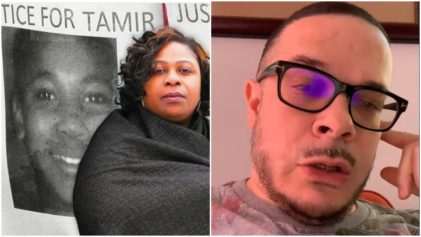As the country continues pushing for solutions to the recent string of police killings of unarmed Black citizens, experts are pointing at poor police recruiting practices as yet another battlefield that needs to be explored.
Last month 12-year-old Tamir Rice was fatally shot by Cleveland police officer Timothy Loehmann and it wasn’t until after the shooting that the department discovered Loehmann’s past as an emotionally unstable officer with a “dismal” handgun performance.
Loehmann’s personnel files were troubling and included a recommendation by his former police chief that he be fired and never allowed back on the force again.
Loehmann resigned from this department in Independence, Ohio, before he was fired.
Experts say that Loehmann is certainly not the first officer to be allowed on the force after personnel files clearly suggested that the officer wasn’t ready for the job.
The shooting of the 12-year-old boy with a toy gun “underscores the need for better vetting,” said John DeCarlo, a professor at the John Jay College of Criminal Justice in New York who has studied hiring practices, according to ABC News. “We have to be more aware of red flags.”
While many departments do conduct background checks and administer personality exams, that isn’t enough to make sure someone is ready to be a police officer.
Without any national standards for screening applicants, it is completely up to the department to decide if they will even dig through the applicant’s personnel files when recruiting new officers.
Some departments have settled for just doing interviews with friends and family members of possible recruits, while others do take the time to request personnel files.
In Loehmman’s case, his file was available for anyone to see because they were considered public record, as all government employee files are in Ohio.

Perhaps then they would have known that Loehmann’s former police chief didn’t think he needed to be trusted with deadly force and he would have never been placed in a position that would allow him to fire at a 12-year-old Black boy only seconds after arriving on the scene.
This is the same problem that other departments across the nation are facing.
In Charlotte-Mecklenburg, North Carolina, police reformed their screening process after one officer pleaded guilty to sexually assaulting six women during traffic stops, the Associated Press reported.
It turned out that the officer had an extensive past of domestic violence allegations and an assault charge.
The department used to outsource recruiters but now uses in-house recruiters to make sure no other recruits with a troubling past slip through the cracks.
“You look for mistakes,” said Mike Aamodt, a retired professor at Radford University in Virginia who taught courses in employee selection, to the Associated Press. “If you hired someone and the person didn’t work out, what did we miss?”
Many believe that better regulations in the recruiting process could help keep dangerous would-be officers off the streets and keep innocent would-be victims alive.



